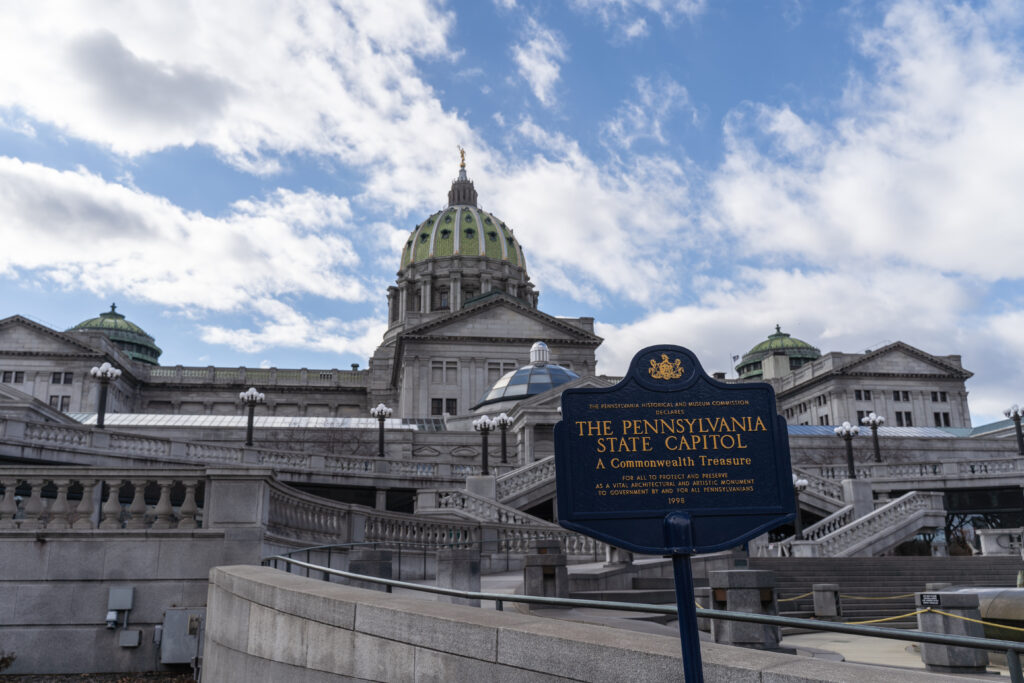
Times may be unique, but things are as confrontational as ever in the capitol.
May and June are normally the busiest months in Pennsylvania’s state capital, with lawmakers scrambling to craft a final spending plan to send to the governor before the end of the fiscal year.
Even amid the global pandemic caused by COVID-19, that hasn’t changed. Things are still busy in Harrisburg. But that doesn’t mean things are normal. Hardly. And it all begins with that 2020-21 General Fund budget.
The General Assembly passed and Gov. Tom Wolf already signed a short-term spending plan. How often does the state enact a budget before the end of May? Virtually never. But the virtual world we live in today proves anything is possible. So does necessity.
Lawmakers have been meeting in person – to the consternation of some, especially after one central Pennsylvania House Republican contracted COVID-19 and withheld his illness from fellow members. And they’ve been logging in via Zoom to convene caucus meetings, hold hearings or schedule votes during a number of legislative days — a lot of legislative days, in fact, something else that seems extraordinary during these unprecedented times.
They were able to craft a short-term spending plan earlier than usual to get them at least into November because they saw an urgent need. And the virtual tools at their disposal allowed them to convene the session quickly, easily and frequently.

Questions about potential tax increases are always answered better in a lame duck session after voters have gone to the polls.
And it didn’t hurt that beyond the new virtual skill sets at their disposal, lawmakers weren’t hounded personally by the usual cast of lobbyists, activists and advocates who push for policy changes and line item allocations, since the Capitol remains closed as part of the shutdown orders related to the state’s pandemic response.
Lawmakers normally recess for summer after the budget is finished. But again, these are anything but normal times. And the state’s pandemic response has a lot to do with it.
Upset that Pennsylvania isn’t back to business as usual, House Republicans led the charge with a concurrent resolution to terminate the governor’s disaster proclamation, which gives him broad powers to manage this public health emergency, including the imposition of his color-coded reopening plan.
But like drivers at a traffic signal, the state isn’t going from red to green fast enough for some.
In early June, the Senate adopted the same resolution with amendments and the House concurred, sending it to the governor, who threatened to veto it. (The measure received some Democratic votes in each chamber, too.)
The General Assembly says the governor has no authority to veto a concurrent resolution. The governor says the General Assembly can’t unilaterally terminate his disaster proclamation. Both base their arguments on the state constitution.
Enter the courts to render a decision — although most scholars don’t expect that decision to come quickly or decisively, because of the precedent-setting nature it could have for the commonwealth in the face of other emergencies.
Ironically, the same day lawmakers and the governor were in a very public battle over a resolution to fully reopen the state, the GOP-controlled House voted to extend its COVID-19 speed-dating rules through the end of session. The rules expedite the House process and allow some bills to run more quickly, limiting public debate. Maybe the House figured out how easy it is to pass legislation virtually while stomping out input or pressure from external sources.
Of course, caught in the middle of all of this are the businesses that are eager to open their doors but also unsure who to really listen to because of potential implications for licensing, insurance and other related operational issues if they choose the wrong side. Understanding all the rules was difficult enough before politics intervened.
One person who businesses won’t be listening to anymore is former House Speaker Mike Turzai, who stepped down June 15. His departure is no surprise; he announced previously that he wouldn’t be running for re-election in 2020. And many speculated he would resign before the end of session to assume his private-sector job.
His resignation comes just days after he agreed to bring up for consideration law and justice reforms that members of the Legislative Black Caucus demanded after taking over the House chamber.
And it means in November, when the House has to finish up its budget amid a crippling fiscal situation, representatives will have to do so under new leadership.
Senators might be faced with the same quandary. Senate President Joe Scarnati isn’t running for re-election in 2020 and may depart before his term is finished, too. Does he really want his last vote to be a massive tax increase to balance a pandemic-stricken budget?
Of course, November is a lifetime away. What we find so extraordinary today may just be the new normal by then.




